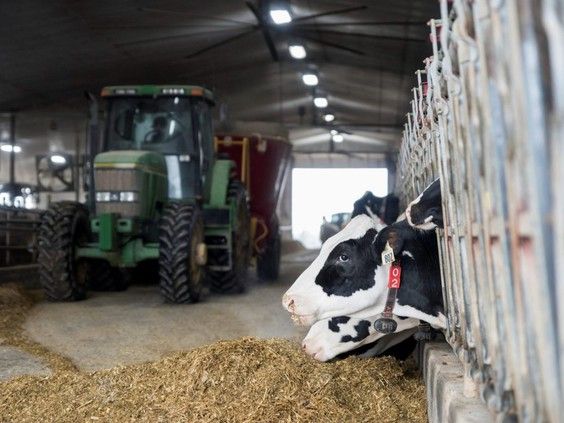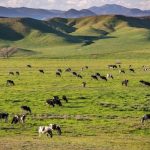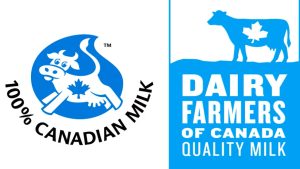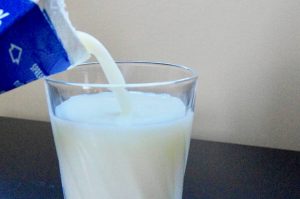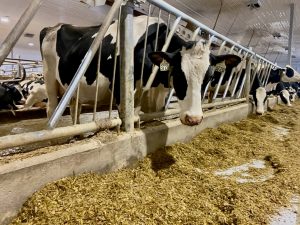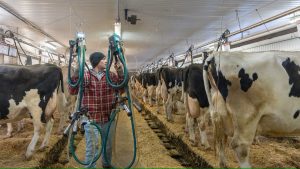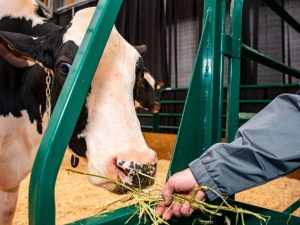
1. “Dairy is expected to increase by 15 per cent in stores. I was wondering what is the expected increase at the farmgate you will receive?”
Effective Feb. 1, the farmgate price of milk will rise by 8.4 per cent or 6.3 cents per litre. If the store prices rise above that, blame the processors, wholesalers, retailers, transporters, etc., for taking the opportunity to get a raise and have it blamed on farmers.
This being said, we all know everything has risen in price so we are expecting that following the start of our increase, the deductions we pay to the Dairy Farmers of Ontario will also increase. We are certain that at least administration and transport (we pay to deliver our milk to the processor) costs per hectolitre will rise. Possibly we will land up with about half of the increase or about three cents per litre to cover our rising input costs.
2. “The most recent milk carton we got just says ‘organic from Dairy Farmers of Canada.’ How do we know if it is pure Canadian? Labeling needs to be clearer.”
The product label should show a rectangular blue logo containing the silhouette of a cow with a maple leaf on its belly which means the product either is or is made from 100 per cent pure Canadian milk. This logo replaces the old blue “dancing cow.” If it says “organic from Dairy Farmers of Canada,” it should be 100 per cent pure Canadian organic milk (or butter, cheese, yogurt, etc.). If it says “Product of Canada,” the same. Processors are encouraged to put this logo on all packaging to identify it as Canadian, however some are still reluctant to spend the money to have it added. Not sure? Call the company.
3. “Also, will non-Canadian milk impact the price increase? Could folks buy cheaper American milk?”
The import of milk and milk products from foreign countries, not just the U.S., does not impact the price that Canadian dairymen are paid for their milk. What it does impact though, is our quota.
As you know, Canadian farmers buy milk quota at a fixed price of $24,000 per kilogram of butter fat to be able to sell milk. The quota a farmer holds is how much milk he can ship containing that specific amount of butter fat per day. It resets every day. In a monthly exchange, farmers can buy a minimum of 0.10 kilograms or as much as 10 per cent of their current holdings, depending on how much is available for sale by farmers either quitting or downsizing. The rules split available quota among those wanting to buy, new producers entering with assistance, and new producers. Currently most exchanges result in us being able to buy just 0.10 kilograms, and twice this year the exchange has been cancelled due to insufficient quota for sale.
The DFO has a “float” of quota and it balances the supply of Canadian milk to the demand by occasionally giving increases or decreases of certain percentages to Ontario dairy farmers. Last June, we all received a quota increase of 1.5 per cent of our holdings as the demand for milk rose. This past Thursday, we were advised that effective Dec. 1, there is a decrease of one per cent as the expected demand for milk has not occurred – COVID-19 is to blame and a slow recovery of business. In all likelihood imports have influenced it too. As foreign milk and products enter, it decreases our domestic milk requirement. These increases do not cost the farmer anything, however when quota decreases occur we are not reimbursed for what we have lost, even if it involves quota we have bought.
I know American-made cheese and products are currently available for sale in Canada (Anderson’s and Annie’s come to mind), however I have no idea if American fluid milk will be for sale here of not.
If it is, it will not meet the same standards as Canadian dairies are required to meet nor will it be any cheaper.
